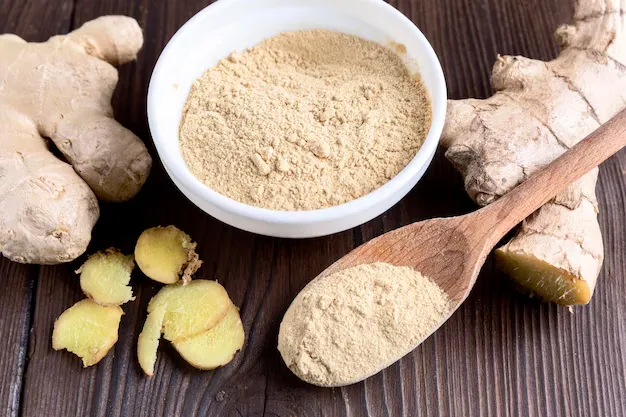Exploring the Health Benefits of Saffron in Your Daily Diet
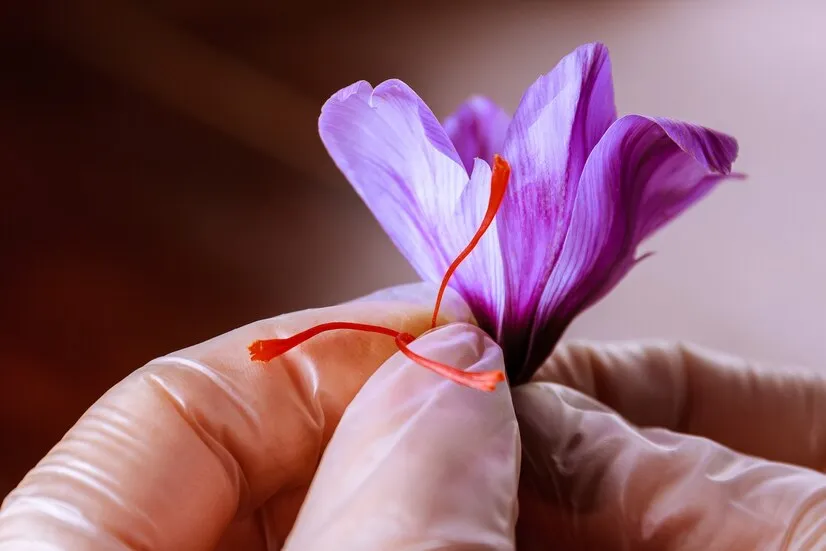
- What's the Big Deal About Saffron?
- The Nutritional Lowdown on Saffron
- Saffron and Your Mood: A Match Made in Heaven
- Saffron: Your Eyes' New Best Friend
- Saffron and Heart Health: A Love Story
- Saffron: The Brain's Little Helper
- Saffron and Weight Management: A Spicy Solution?
- Saffron: Nature's Beauty Secret?
- How to Add Saffron to Your Diet
- The Bottom Line: Is Saffron Worth the Hype?
- Final Thoughts: Spice Up Your Life with Saffron
- Frequently Asked Questions About Saffron
Health Benefits of Saffron – Hey there, health enthusiasts! Ever wondered about that vibrant red spice that’s been making waves in the wellness world? Yep, we’re talking about saffron – the golden thread of health that’s been spicing up our lives for centuries. Today, we’re diving deep into the treasure trove of Health Benefits of Saffron that brings to the table. So, grab your favorite health drink, kick back, and let’s unravel the secrets of this ancient spice together!
What’s the Big Deal About Saffron?
Picture this: you’re browsing through your local health food store, and you spot a small jar with delicate red threads. That’s saffron, folks – the world’s most expensive spice by weight. But don’t let the price tag scare you off! This potent little powerhouse packs a serious punch when it comes to your health.
Saffron isn’t just a fancy addition to your paella or biryani. It’s been used for thousands of years in traditional medicine, from ancient Persia to modern-day wellness clinics. And guess what? Science is finally catching up to what our ancestors knew all along – saffron is a true superfood.
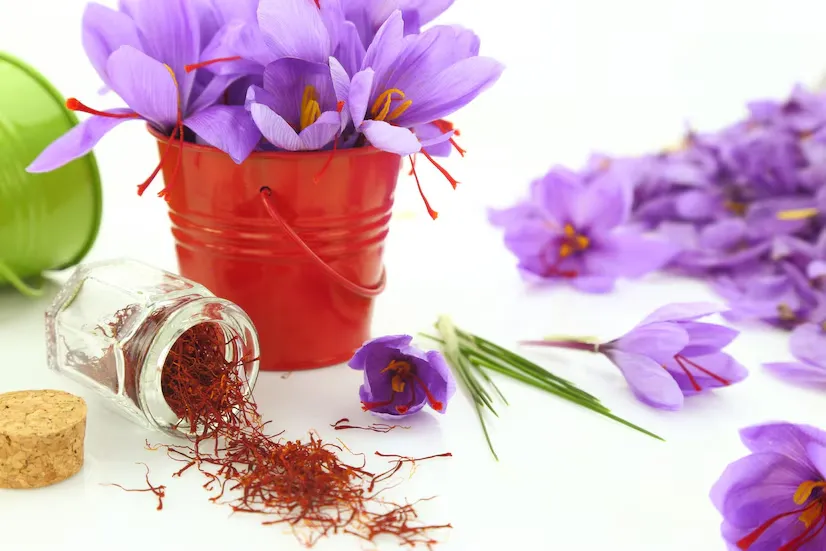
The Nutritional Lowdown on Saffron
Before we dive into the Health Benefits of Saffron, let’s break down what makes saffron tick. This spice is a nutritional goldmine, packed with:
- Antioxidants: Including crocin, crocetin, safranal, and kaempferol
- Vitamins: A, C, and B complex vitamins
- Minerals: Manganese, magnesium, iron, and potassium
- Dietary fiber
It’s like a multivitamin in a thread! But the real magic happens when these compounds work together in your body. Let’s explore how.
Related Article: Caffeine Benefits for Skin: Glowing Skin Naturally
Saffron and Your Mood: A Match Made in Heaven
Ever had one of those days where you just can’t shake off the blues? Saffron might be your new best friend. Research has shown that saffron can be a natural mood booster, potentially rivaling some conventional treatments for mild to moderate depression.
A study published in the Journal of Ethnopharmacology found that saffron extract was as effective as fluoxetine (a common antidepressant) in treating mild to moderate depression. How cool is that? It’s like a little sunshine in your system!
But how does it work? Scientists believe that saffron increases serotonin levels in the brain – that’s the feel-good neurotransmitter responsible for happiness and well-being. So, next time you’re feeling down, maybe skip the ice cream and try a saffron-infused tea instead!
Saffron: Your Eyes’ New Best Friend
Alright, let’s talk about those peepers of yours. In today’s digital age, our eyes are working overtime, and they need all the help they can get. Enter saffron – the spice that’s got your back (or should we say, your eyes).
Research published in the journal Evidence-Based Complementary and Alternative Medicine suggests that saffron may help prevent age-related macular degeneration (AMD) and cataracts. It’s all thanks to those powerful antioxidants we mentioned earlier, particularly crocin and crocetin.
These compounds act like a shield, protecting your eyes from oxidative stress and damage from blue light (yeah, that stuff coming from your phone and computer). So, while we’re not saying you should ditch your blue light glasses, adding some saffron to your diet might give your eyes that extra layer of protection they need.
Saffron and Heart Health: A Love Story
Let’s get to the heart of the matter – literally. Your ticker is pretty important, and saffron wants to be its new BFF. Here’s how this spice is looking out for your cardiovascular health:
- Lowering Blood Pressure: A study in the Journal of Medicinal Food found that saffron extract helped reduce blood pressure in adults with hypertension. It’s like a gentle massage for your blood vessels!
- Reducing Cholesterol: Research published in the Journal of Cardiovascular and Thoracic Research showed that saffron could help lower bad cholesterol (LDL) and increase good cholesterol (HDL). It’s like a traffic cop for your arteries, directing things where they need to go.
- Anti-Inflammatory Effects: Chronic inflammation is a key player in heart disease. Saffron’s anti-inflammatory properties, as demonstrated in a study in the European Journal of Pharmacology, may help keep that inflammation in check.
So, next time you’re thinking about heart-healthy foods, don’t forget to add a pinch of saffron to your list!
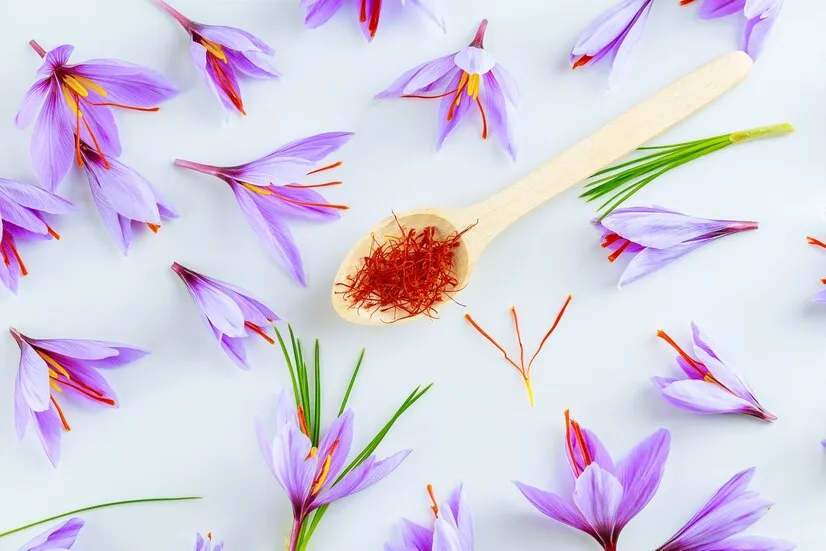
Saffron: The Brain’s Little Helper
Okay, let’s talk about your noggin. In today’s fast-paced world, we could all use a little cognitive boost, right? Well, saffron might just be the brain food you’ve been looking for.
Research published in the Journal of Clinical Pharmacy and Therapeutics suggests that saffron may help improve cognitive function and memory. It’s like a personal trainer for your brain cells!
But it gets even better. Some studies have shown that saffron might have potential in preventing neurodegenerative diseases like Alzheimer’s. A review in the journal CNS Neuroscience & Therapeutics highlighted saffron’s neuroprotective effects, suggesting it could be a promising natural option for supporting brain health as we age.
Now, we’re not saying saffron will turn you into a genius overnight, but it might help keep your mind sharp and focused. Who knew such a tiny spice could pack such a big brain punch?
Saffron and Weight Management: A Spicy Solution?
Alright, let’s address the elephant in the room – weight management. We’ve all been there, trying to shed those extra pounds or maintain a healthy weight. Well, saffron might have a trick or two up its sleeve to help you out.
A study published in the Journal of Cardiovascular and Thoracic Research found that saffron extract could help reduce snacking and increase satiety. In other words, it might help you feel fuller for longer and resist those pesky cravings.
But how does it work? Researchers believe that saffron may affect serotonin levels in the body, which play a role in appetite regulation. It’s like having a little voice in your head saying, “Nah, you don’t need that extra cookie.”
Now, before you go sprinkling saffron on everything thinking it’s a magic weight loss powder, remember – it’s not a miracle cure. A balanced diet and regular exercise are still key. But adding some saffron to your healthy lifestyle might give you that extra edge in reaching your weight goals.
Saffron: Nature’s Beauty Secret?
Who doesn’t want glowing, healthy skin, right? Well, saffron has been a beauty secret in many cultures for centuries, and modern science is starting to back it up.
Saffron is packed with antioxidants that can help protect your skin from damage caused by free radicals and UV rays. It’s like having a tiny shield for each of your skin cells!
A study published in the Journal of Cosmetic Dermatology found that a cream containing saffron extract helped improve skin complexion and reduce pigmentation. So, while we can’t promise you’ll wake up looking like a supermodel, adding saffron to your diet (or even your skincare routine) might give your skin that extra glow you’ve been looking for.
How to Add Saffron to Your Diet
Now that we’ve got you all excited about saffron, you’re probably wondering, “How do I get more of this stuff in my life?” Don’t worry, we’ve got you covered. Here are some easy ways to incorporate saffron into your daily diet:
- Saffron Tea: Steep a few threads of saffron in hot water for a soothing, aromatic tea.
- Cooking: Add saffron to rice dishes, soups, or stews for a flavor and health boost.
- Smoothies: Throw a pinch of saffron into your morning smoothie for an exotic twist.
- Baking: Use saffron in bread, cakes, or cookies for a unique flavor and golden color.
- Health Drinks: Look for health drinks or supplements that contain saffron extract.
Remember, a little goes a long way with saffron. Start with small amounts and gradually increase as you get used to the flavor.
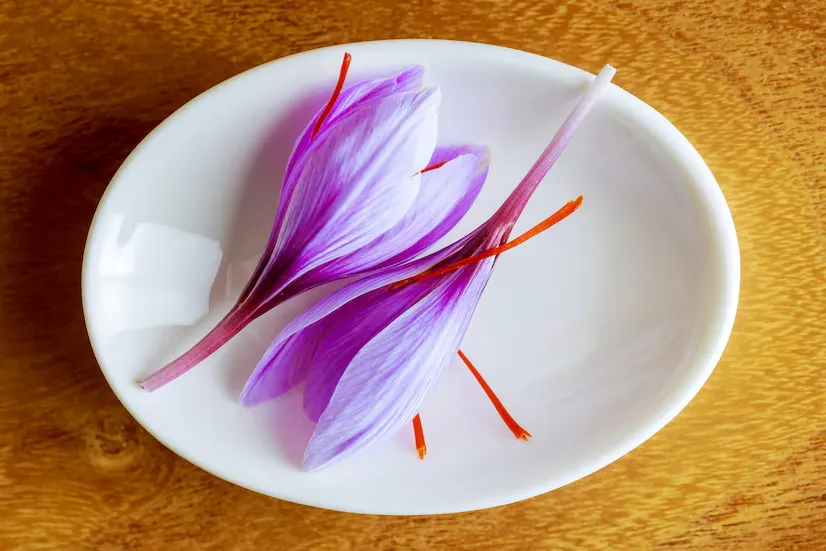
The Bottom Line: Is Saffron Worth the Hype?
After diving deep into the world of saffron, we can confidently say – yes, it’s worth the hype! From boosting your mood to protecting your heart, supporting brain health, and even giving your skin a glow-up, saffron seems to be a true all-rounder in the world of natural health.
But here’s the thing – while saffron is amazing, it’s not a magic bullet. It works best as part of a balanced, healthy lifestyle. Think of it as a powerful ally in your quest for better health, not a replacement for good habits.
Also, remember that quality matters. Given saffron’s high price, there are unfortunately some low-quality or fake products out there. Always buy from reputable sources and look for certifications of authenticity.
Lastly, if you have any existing health conditions or are taking medications, it’s always a good idea to chat with your healthcare provider before adding any new supplement to your routine, saffron included.
Final Thoughts: Spice Up Your Life with Saffron
So there you have it, folks – the lowdown on saffron, the golden spice of health. From its mood-boosting properties to its potential effects on heart health, brain function, and even weight management, saffron is proving to be more than just a culinary delicacy.
As we’ve seen, incorporating saffron into your daily diet could be a simple yet effective way to give your health a natural boost. Whether you’re sipping on saffron tea, adding it to your cooking, or looking for saffron-infused health products, there are plenty of ways to enjoy the benefits of this ancient spice.
Remember, the journey to better health is a marathon, not a sprint. Small, consistent changes – like adding a pinch of saffron to your diet – can add up to big results over time. So why not give it a try? Your body (and taste buds) might thank you!
Stay healthy, stay happy, and keep spicing up your life!
Frequently Asked Questions About Saffron
- Q: Is saffron safe to consume daily?
A: Generally, saffron is safe for most people when consumed in food amounts. However, high doses (more than 5 grams per day) may have side effects. It’s always best to consult with a healthcare professional before starting any new supplement regimen. - Q: Can saffron interact with any medications?
A: Saffron may interact with certain medications, including blood thinners and drugs that affect blood pressure. If you’re on any medications, it’s important to speak with your doctor before adding saffron to your diet. - Q: How much saffron should I consume to see Health Benefits of Saffron?
A: Most studies on Health Benefits of Saffron have used doses ranging from 30-50 mg per day. However, the optimal dose can vary depending on the specific health concern and individual factors. It’s best to start with small amounts and increase gradually. - Q: Can saffron help with PMS symptoms?
A: Some studies suggest that saffron may help alleviate symptoms of premenstrual syndrome (PMS), including mood swings and cramps. However, more research is needed to confirm these effects. - Q: Is there a difference between Spanish and Iranian saffron?
A: While both Spanish and Iranian saffron are high-quality, they can have slight differences in flavor and aroma due to varying growing conditions. Iranian saffron is often considered the gold standard, but Spanish saffron is also excellent and may be more readily available in some regions. The most important factor is ensuring you’re purchasing genuine, high-quality saffron regardless of its origin.

